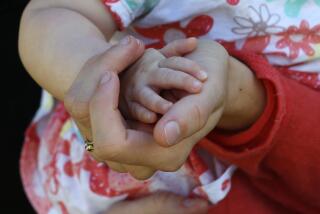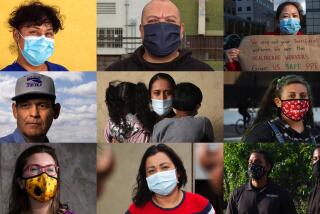25% of Working Parents Lack Sick-Child-Care Time
- Share via
CHICAGO — One in every four working parents of school-age children is not entitled to stay home when a child is sick, forcing such parents to send ill children to school or risk getting fired, a study found.
And parents who need sick leave the most--the working poor and those who have children with chronic illnesses such as asthma--are least likely to be entitled to leave, according to one of the few nationwide studies to explore the issue.
“Nearly 60% of poor working parents had no sick leave the entire time between 1985 and 1990,” the researchers reported in the August issue of Pediatrics, published by the American Academy of Pediatrics.
About 40% of single mothers whose children had asthma had no sick leave from 1985 to 1990, the study found.
Of all working single mothers, 28% lacked sick leave during that period, said the researchers, led by Dr. S. Jody Heymann, director of health and social policy at Harvard Center for Children’s Health.
In the 1985-90 period, 27% of poor families averaged three weeks or more of family illnesses, the number of days both children and parents were ill. For non-poor families the figure was 23%.
The study defined poor as a family with income up to 125% of the federal poverty level, or $16,700 annual income for a family of four.
“It’s a solvable problem,” Heymann said. “If everybody in the country received the average number of days of sick leave for their firm size, and if they were allowed to use that to care for their children, then 80% of parents would be able to meet their sick-child-care needs.
“We wouldn’t have solved the problem, but we would have made very significant headway,” she said.
The Family and Medical Leave Act, enacted in 1993, is no help to most parents because it involves unpaid time off and covers only major illnesses that typically require a hospital stay, the researchers said.
In most cases, children don’t need hospitalization but instead have frequent routine illnesses, the researchers said.






